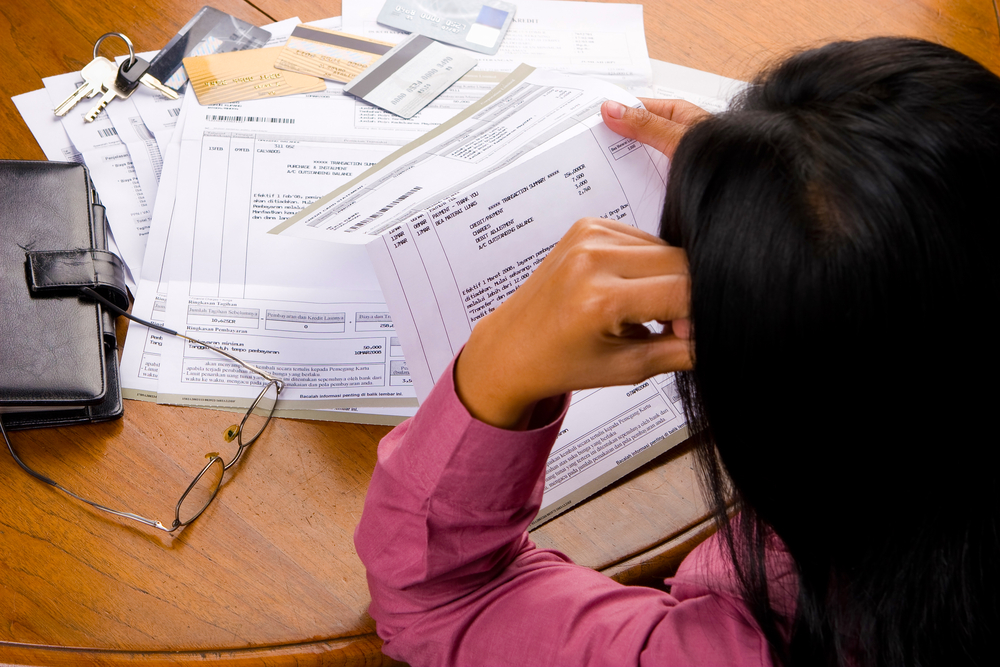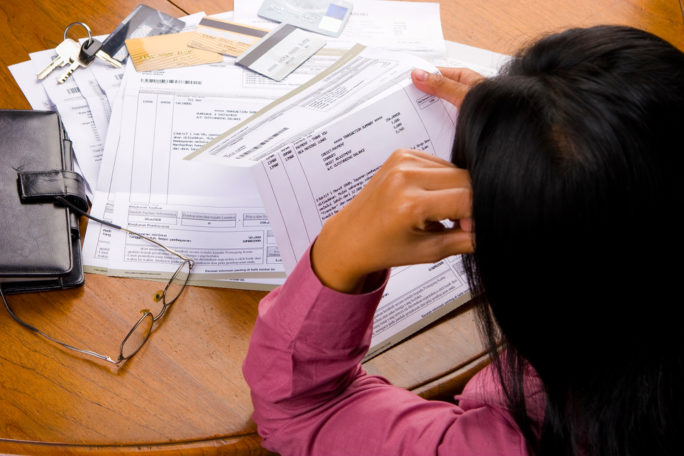How Credit Card Debt is Crippling Americans
Credit card debt can be a challenge for many Americans, but it can also present an opportunity to reach financial goals.
Managed correctly, credit card debt can be advantageous in improving credit ratings, paying for unforeseen costs, and even investing in new business ventures.
A report from the Federal Reserve Bank of New York in November revealed that credit card balances had increased 15% year-over-year, the greatest surge in the past two decades.
The pandemic has resulted in economic instability, and this is why consumers are using credit cards to get through it, leading to increased debt.
Having a strategy for eliminating credit card debt can bring financial security and help people to accomplish their goals.
With that being said, credit cards can be a useful financial tool if managed correctly, and debt can be controlled.
In the following sections, we’ll go over strategies for reducing credit card debt, consolidating debt, and working with creditors to improve your finances.
Ways to Pay Down Your Credit Card Debt: Snowball, Avalanche, and More
When it comes to paying down credit card debt, there are a handful of strategies that you can use. These strategies include the debt snowball method, the debt avalanche method, and paying more than the minimum balance.
It’s important to determine which technique works best for you by looking at the pros and cons of each option.
Through the debt snowball approach, you pay off your debts starting with the smallest amount first. The payment for each debt is then applied to the next smallest balance until all debt is eliminated.
Seeing your debt level go down can create a sense of accomplishment and drive you to keep going, making this method effective.
With the debt avalanche method, instead of tackling the card with the lowest balance first, you pay off the one with the highest interest rate — a similar strategy to the snowball approach.
This method can be a faster and cheaper way to pay off your debt, but it does require more discipline and organization.
Another way to reduce credit card debt, is to pay more than the minimum payment each month. The credit card issuer’s minimum is usually 2% of the balance. It benefits the bank if you take longer to pay off since they collect interest each month.
Paying more than the minimum balance can help you save money on interest and pay off your debt quicker.
Setting up automatic payments is an effective way to ensure your bills are paid on time, preventing you from incurring extra penalties.
If you’re following a debt snowball or avalanche plan, this approach can prove beneficial by making sure the exact amount is put towards each account.
Achieving financial freedom starts with designing a plan and being dedicated to it. Through the right approach and making steady payments, credit card debt can be paid off and desired objectives can be realized.

Easier Debt Consolidation: Balance Transfer Cards and Personal Loans
Debt consolidation is a strategy that can assist with reducing credit card debt by combining several debts into a single payment. This simplifies managing payments, and may even provide a lower interest rate.
Zero percent balance transfer credit cards can be used to help manage existing credit card debt. This involves applying for a card with a lengthy 0% introductory period, typically 15 to 18 months, and transferring all outstanding credit card debt to the new account.
With this option, you can pay a single amount each month and avoid paying any interest during the introductory period.
When transferring a balance, it is critical to read the T&Cs, noting any associated fees and the post-introductory interest rate.
A personal loan is another way of consolidating credit card debt. With this option, you can obtain a fixed-rate loan to clear your existing credit card balance.
Personal loans usually have lower interest rates than credit cards, which can help you save money in the future. Remember though that there will be interest to pay on the loan, so use a debt consolidation calculator to estimate your potential savings.
Debt consolidation is not an all-encompassing solution, and one must have a plan for debt repayment even after consolidating. It is important to understand that this may not be the right choice for everyone.
Before selecting a financing option, it’s important to compare fees and interest rates with other alternatives in order to make the best choice according to your financial circumstances.
Dealing With Creditors: Negotiating Rates and Debt Relief Options
Working with your creditors to negotiate rates and exploring debt relief options is important when tackling credit card debt.
You can negotiate with your creditors to reduce interest rates, or consider debt relief solutions such as debt management plans, debt settlement, or bankruptcy.
Negotiating lower interest rates with creditors is a great way to reduce debt and make repayment simpler.
Prior to speaking with your creditors, gather information regarding your income, expenses, and debt.When communicating with them, be certain to be open and honest about your situation and share a payment plan for tackling the debt.
If you’re overwhelmed with debt, finding a debt relief program could help. A Debt Management Plan is an example of this type of program, in which all your debts are consolidated into one payment, then handled by a credit counseling agency.
Debt settlement is a negotiation where the creditor accepts a lower amount than the full debt amount. Be sure to be familiar with the fees and risks, and look for a reliable agency before engaging in such services.
Bankruptcy should only be considered as a last resort, as it can have a long-term impact on your credit score. In certain circumstances, it may be the best solution for those struggling to pay off their debt.
Before deciding on bankruptcy, it’s essential to talk to a bankruptcy attorney and familiarize yourself with the two types of bankruptcy (chapter 7 and chapter 13) and their effects.
When it comes to creditors, it’s best to be proactive and have a plan. It’s also helpful to consider the different debt relief options that exist so you can select the one most suitable for you.
Are Debt Relief Programs Worth It?
If you’re struggling to pay your debts, debt relief programs can be a helpful way to manage them.
Nonetheless, one must be aware that these programs can incur expenses and risks and may not be suitable for everyone.
Debt consolidation through debt relief programs like debt management plans, debt settlement, and credit counseling can be an effective way to decrease your outstanding debt.
They can help lower your interest rate, decrease monthly payments, and create a plan for debt repayment.
When considering debt relief programs, it’s important to be mindful of the associated fees which may accumulate. Furthermore, it’s essential to recognize that not all programs are equal; some may have hidden costs and high rates of interest, and may not be legitimate or trustworthy.
It’s important to be aware that debt relief programs can adversely affect your credit score, as they may be reported to credit agencies and remain on your report for up to 7 years.
Additionally, closing your credit card accounts for certain programs may lower your credit score.
It all comes down to your personal finances when deciding if a debt relief program is worth it.
It’s essential to do your due diligence, analyze different possibilities, and recognize the expenses and risks involving each program before arriving at a conclusion. Speaking with a financial specialist or a credit counselor can also be beneficial when making a decision.
Final Thoughts: Creating a Plan and Sticking to It.
To pay off credit card debt, you should come up with a plan and be proactive in contacting creditors for better payment terms.
When dealing with credit card debt, individuals can use strategies such as the debt snowball method, the debt avalanche method, and debt consolidation for repayment. Additionally, it’s beneficial to communicate with creditors in order to determine potential relief options and negotiate rates.
Credit card debt can be a powerful way to reach financial success if used wisely; but it’s also necessary to remain mindful of proper management.
Effective credit card debt repayment requires developing a plan and then following it. With the right strategy and consistent payments, individuals can achieve their financial goals by paying off their debts.
When considering debt relief, it is important to find the option that’s best for your own situation. Be aware of costs and risks, as this could affect your credit score.
To pay off credit card debt, it is necessary to possess determination, endurance and a desire to manage money. Making a plan and consistently following it will enable one to take charge of their credit card debt and achieve financial success.
Here are some additional tips that may be helpful when trying to pay off credit card debt:
Be aware of your spending habits
By keeping track of your spending, you can identify areas where you can cut back and redirect that money towards paying off your debt.
Prioritize high-interest debt
By paying off the credit card with the highest interest rate first, you can minimize the amount of interest you pay over time.
Avoid new debt
While paying off your existing credit card debt, it’s important to avoid accumulating new debt. This means being mindful of your spending and not taking on new credit card balances.
Consider a side hustle
If you’re having trouble making ends meet, consider taking on a side hustle to earn extra income. This can help you pay off your debt faster.
Take advantage of rewards programs
If you’re using credit cards responsibly and paying off your balances in full each month, rewards programs can be a great way to earn cash back, points, or other perks.
Seek professional help
If you’re struggling to pay off your credit card debt, consider seeking help from a financial advisor or credit counselor. They can help you create a budget, negotiate with creditors, and explore debt relief options.

